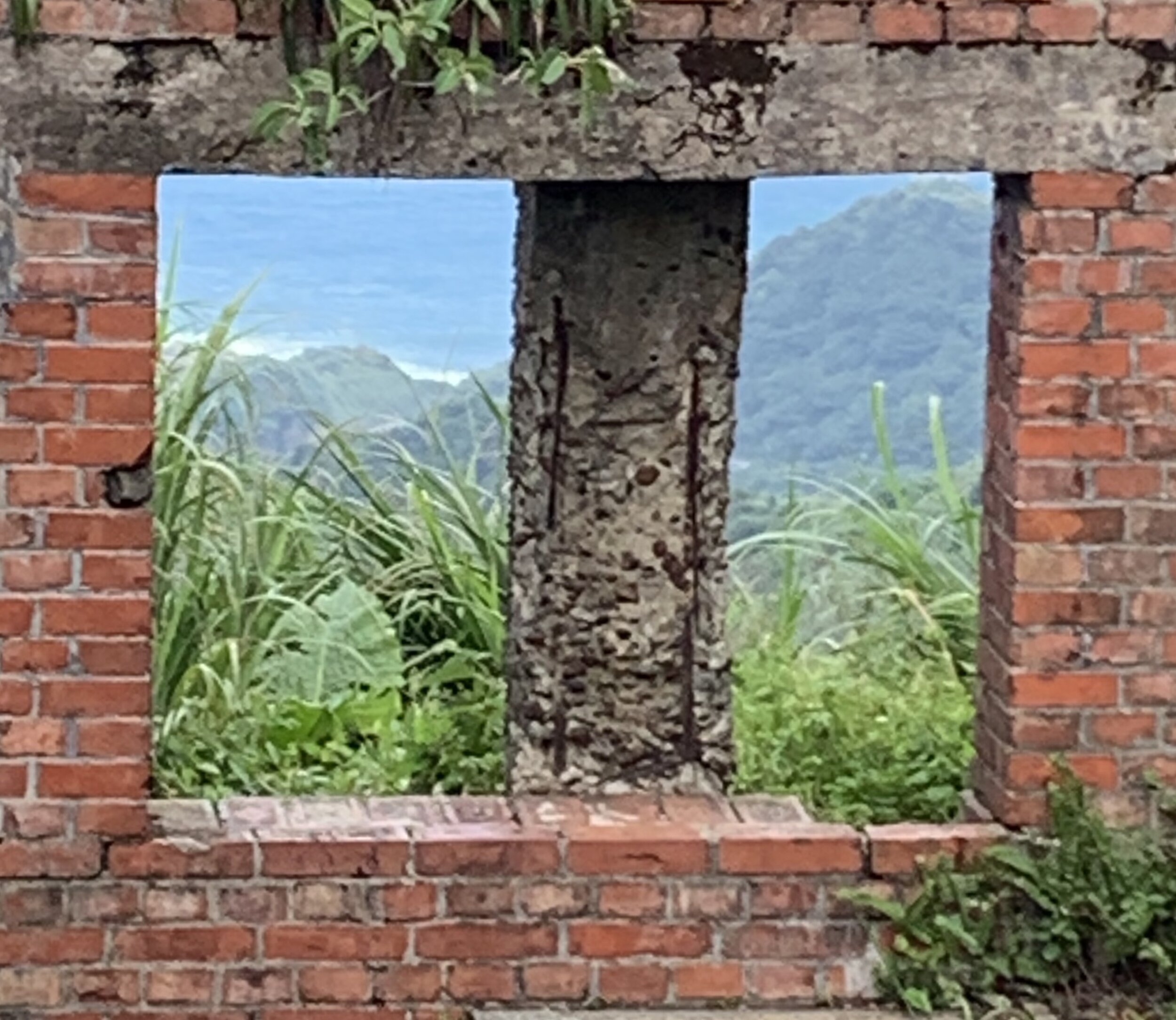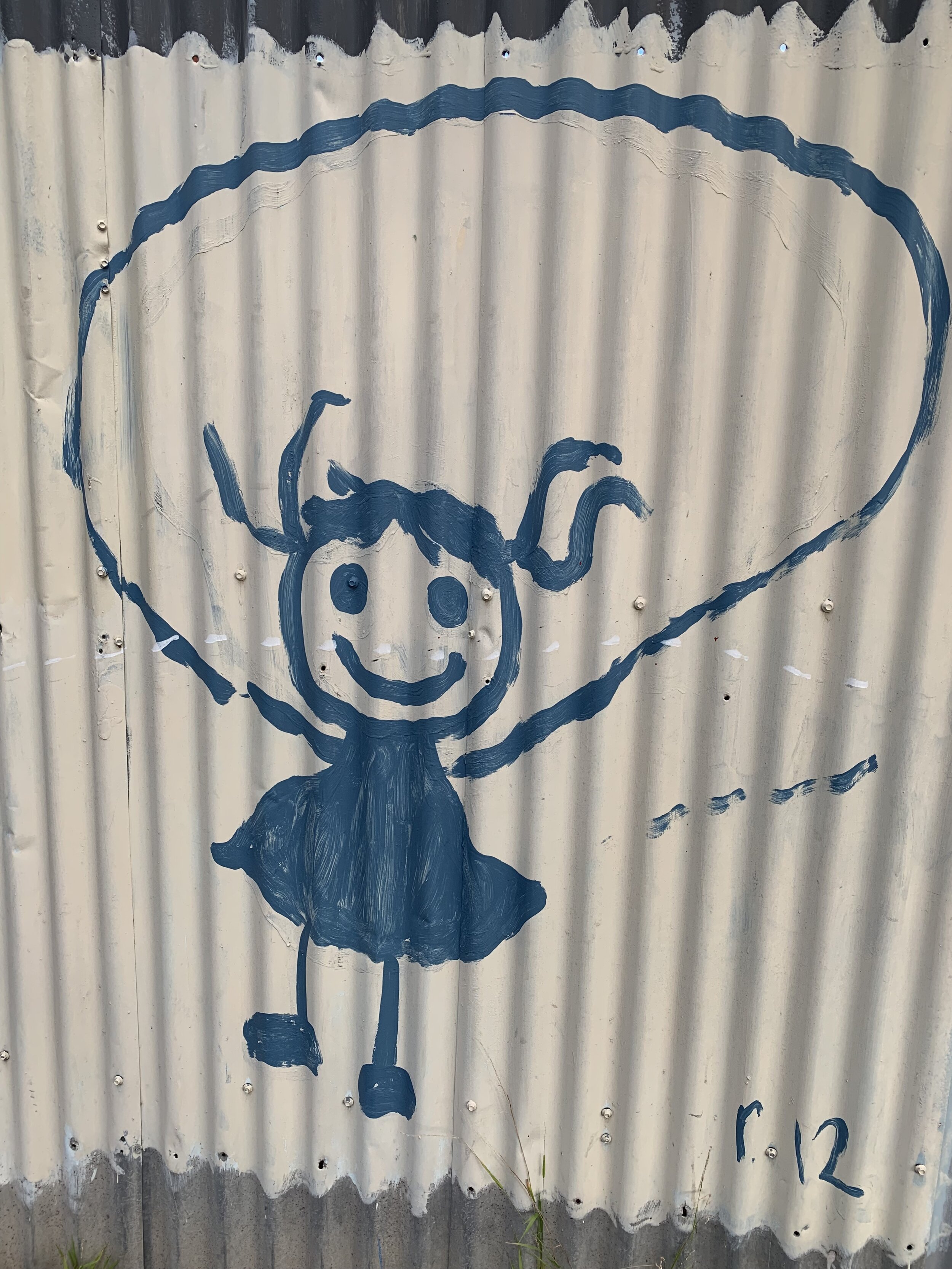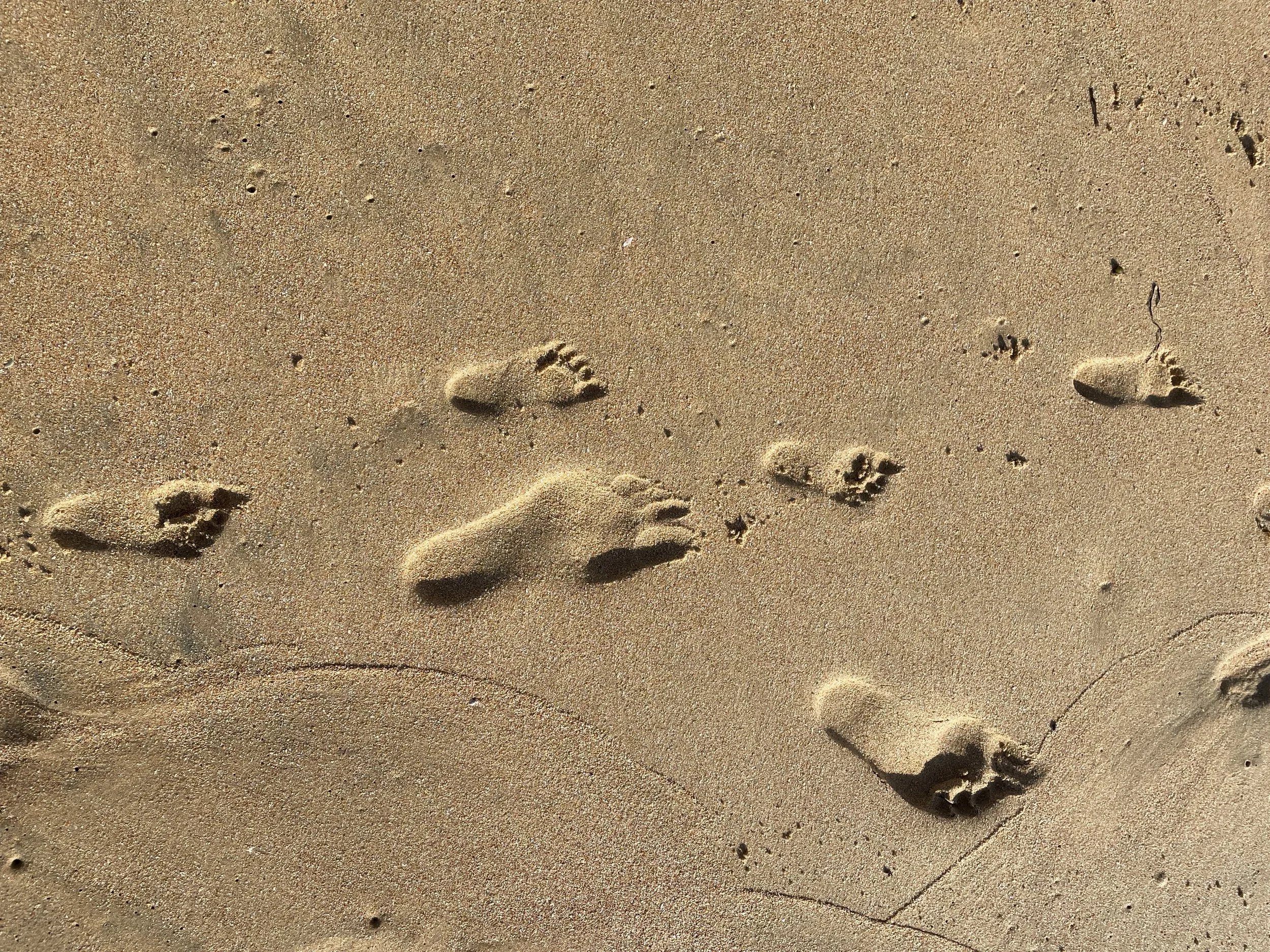Living in the Covid-19 space: living with liminality
Living in the Covid-19 space: living with liminality
Based on a workshop by Greg Roberts: Grief and Liminality 16-17 May 2020
“Time is a mighty force. Friendship is a mighty force. Learned patience is a mighty force.” Katy Friedman Miller, 2019
Life at the moment is weird. We’re all saying it; and feeling it. Social norms have changed. It is now the norm to stand 1.5 metres away from each other. It is now the norm not to hug each other in greeting. It is now the norm for once busy railway stations to be deserted, cafes to only do take away, people to work from home, friends and family not to see each other for days, weeks and even months. There have been tens of thousands of deaths. Old griefs have been triggered, fear has been speared into our hearts and it has been hard to remove it. Instead we have been trying to live with acute fear.
These are the new norms but it does not feel normal. Not that the structure of the world has changed but that our experience of it has changed. (Thomas J., 2020) Yet this is deeply disorienting. “Loss of possibilities is not ordinarily so profound that things cease to be experienced as things at all. Nevertheless, this is consistent with their appearing oddly bereft of their usual familiarity and significance, decontextualized.”(Ratcliffe, M., 2019) Navigating this space has been a challenge.
As human beings we are built for connection. This is, in part, what our limbic system in our brain is all about. Connection and relationship. We are creative beings so we have found some remarkable and clever ways to keep connected. The Houseparty app, Zoom and other online platforms, ‘old’ tech like phones. Netflix parties and so on.
These ways of connecting are clever and effective however they don’t offer us the full range of communication that being in person offers. Perhaps a fifth of our communication is verbal, through words. The rest of what we pick up from each other is nonverbal including posture, tics, stances, movements. So we’re working harder to read each others moods and understand what is being communicated to us.
This Covid space doesn’t feel normal because our normal routines of work, play, exercise, hobbies, relationship, leisure have been severely disrupted. We find ourselves in a space in between what was our normal life and what we hope/think/wonder will be our future lives. This space between is called a liminal space from the word Latin word Limen which means threshold. “A liminal space is the time between what was and what comes next. It is a place of transition, waiting, and not knowing.”(Miller, K.F., 2019)
You might have noticed, that this liminal space, this place between, is not very comfortable. Perhaps a tad more comfortable for introverts who intermittently remove themselves from the mainstream of life into another quieter space to regenerate. Therefore, by implication, liminality may be more challenging for extroverts who regenerate though connection and being social. However this in-between place is not an easy space to be in for anyone.
How can we navigate our way through this Covid experience without feeling like we’re floating, untethered or lost?
It is important to acknowledge that floundering in this space is a normal response. Although the restrictions are lifting we are still in a place of unknowing. What will the easing of restrictions result in? There is an added aspect of our lives which holds a great deal of uncertainty. Many people experience the feeling of their former lives falling away from them and their future life feeling unclear. Both can swirl in and out of focus at the same time creating fear, anxiety and confusion.
There are many changes and losses that have come out of the Covid environment, Loss of normal life, of health security, of connection, of routines, spaces we gathered in. And of course loss of income, housing, and access to the basics of life. (I’m speaking of the developed world here as poor countries, refugees and other vulnerable populations experience these losses as part of their normal life.)
In effect we are in a stress response. In fact most of the globe is in a stress response. The stress hormone cortisol has increased in our bodies. The impact of increased cortisol is a decrease in other functions. It is harder to concentrate, to think clearly or to plan. We can’t get rid of our stress response however we can calm it by finding a way to respond to what is happening. So how can we calm our bodies and minds within the Covid context?
The difficulty of the current context is in part the uncertainty. Actually we live with uncertainty all the time. To manage this as human beings we build anchor points into our lives. We need them to help us feel tethered to our world and not floating. Floating, in this particular context, can be highly stressful as it means there is a lack of feeling located in your family, routine, community, life in general. Anchor points come in lots of different forms for we’re all in the same storm, but we’re all in our different boats.
Putting routines into place provides a series of mini anchor points throughout the day. Small, regular events that happen at a particular time of the day as part of a series of things we do. Get up, have a shower, have breakfast, get a coffee, chat with the locals, pack the work bag, go to work. Routine manages chronological time which creates a sense of certainty. This is why, when our routines are so severely disrupted we can feel lost. If we have been able to adjust our routine whilst in lockdown, this will create a helpful rhythm. Of course, as restrictions shift and change this requires constant adjusting which can be disorienting.
Spaces of gathering can be anchor points. Even incidental meeting-up on a dog walk or going from home to the shops, can be a reminder that we exist in a social framework and are part of a bigger human story with its wonders and griefs. “To be with others at such a time is to acknowledge what it means to be human and to be mortal.”(Davies, D., 2020) In our local community there have been a number of anchor points that have held me over this time. The local cafe, which has always been a place of conversation and connection and is regarded as the hub of our community, continues to be a hub in a somewhat ad hoc and socially distant way. Getting coffee has become a ritual for me and as I stand back waiting for my coffee, other locals appear. We chat, mostly about Covid and the impact on our lives, and share news and project into the future together, before we head back into our home/work zones.
Another anchor point has been the gathering of dogs and owners at the park. At 5pm gradually the dogs and their owners come out. The humans dot themselves around the park in the legally acceptable group number, holding conversations about the pros and cons of working at home while the dogs run and play and chase various play things. As the restrictions have begun to be lifted, children and their parents have also been coming to the park to join in the festival of the dogs. The sun sets and the sky puts on a show for us that reminds us that there are things about the world that are still the same. I have a lot of photos of the sunset! I then head home calmed and rejuvenated, ready for the next part of the lockdown life.
Both of these experiences have become kind of rituals for me that mark the passing of time and offer a sense of certainty, security and safety. It’s really about creating what Greg Roberts calls ‘little pools of normal’ in our homes, in our routines, in our communities, in our work lives. And it’s about making something known out of something that is unknown. We’ve been thrust into this weird place of in-between and not knowing. To make it bearable we need to have some known things like routines and rituals that remind us that there are some things we can still rely on in the midst of such intense change and fear.
Anchor points can be many different types of things. “Conversations are had, stories are shared, images are unearthed, memoirs are written, memorials are created, and participants are reminded, through many creative and discursive means, of their connections to the deceased [in this case our sense of normality], the importance of relationships, and the place of past (present and future) relationships, and indeed our own mortality in the overall scheme of things.(Ritchie 2003, pp1-3)
There are people in my world who have found themselves having suicidal thoughts, on antidepressants, in lockdown with domestically violent partners, having to be their child’s teacher putting a strain on their relationship, living with the partner they’ve just separated from, in hospital with no visitors, living in utter isolation as a single member household. We find anchor points where we need them, even if they also work against us. Caroline Pearce says in her article Navigating the liminal space of grief (2014), “In this space of liminality people may also undertake their own habits or practices as a way to bring stability, to ward off the threat of chaos and destruction which are far more likely in the ambiguous state of liminality. These habits might include behaviours considered to be unproductive to the recovery process, such as sleeplessness, anxiety, avoidance, and dwelling on the past. Yet I would argue these ‘bad’ habits… might also be read as a strategy people use to maintain a foothold in the liminal process.”
Covid-19 has had a huge and disruptive impact on so much of the globe, on our nation, our communities and our individual lives. Yet this in-between space has offered us opportunities that thought they may have always been available to us have also been out of reach. In my many conversation with friends, family, neighbours, clients and colleagues, there has been an acknowledged shift. The passage of time without contact has offered the opportunity for reflection. Some have decided to let go of friendships that have been hurtful or difficult. Some have decided to pare back their social lives so they have more free time to do the things they’ve discovered or rediscovered in lockdown - knitting, reading, gardening, going for walks, being with their partner or children. Some have really appreciated the space and time to themselves. In the absence of the ‘usual’ frenetic activity has emerged an awareness of being social to please others, and the need to live within one’s social and emotional limitations. Working at home has become more do-able creating space, taking cars off the roads or planes out of the air. “A space of liminality is full of potential for transformation and for experimentation and exploring alternative avenues, or in other words it is a space of ‘becoming’.(Pearce, C., 2014)
The pandemic has been a difficult space throwing enormous challenges for each of us to manage and endeavour to overcome. The ramifications may go on for years to come and it is yet to become evident what our world will look like when we emerge from the Covid chrysalis. We will land somewhere. Perhaps holding that in mind will strengthen us… me for the path ahead.
References
Davies, D., 2020, Rites of Passage, Encyclopaedia of Death and Dying, viewed on 25 May, 2020, http://www.deathreference.com/Py-Se/Rites-of-Passage.html#ixzz6JBmTQQjN
Meyers, M., 2008, ‘Liminality and the problem of being-in-the-world: reflections on Sartre and Merleau-Ponty’, Sartre Studies International, Vol. 14, No. 1, pp 78-105
Miller, K.F., 2019, How to surrender to the in-between: on liminal spaces and finding comfort in the not knowing, Human Parts by Medium, viewed on 25 May, 2020, https://humanparts.medium.com/when-the-river-meets-the-sea-on-being-not-one-place-or-the-other-or-both-places-at-once-e781176b3d28
Pearce, C., 2014, Navigating the liminal space of grief, Sage Journals, viewed on 25 May, 2020, https://politicsofthehap.wordpress.com/2014/06/29/navigating-the-liminal-space-of-grief/
Ratcliffe M., 2019, ‘Towards a phenomenology of grief: Insights from Merleau-Ponty’, European Journal of Philosophy, 2019;1–13. https://doi.org/10.1111/ejop.12513
Ritchie, David 2003, Loss, grief and representation: "Getting on with it", Double dialogues, vol. 4, Winter, pp. 1-3.
Roberts, G., Grief and Liminality, Centre for Existential Practice, 16 and 17 May 2020
Thomas, J., 2020, Understanding how liminal space is different from other places, Betterhelp, viewed on 25 May, 2020, https://www.betterhelp.com/advice/general/understanding-how-liminal-space-is-different-from- other-places/
About Greg Roberts…
Greg is a social worker with 22 years’ experience working in the health and community services sector. In 2001 Greg began to specialise in the field of grief, loss and trauma – working as a Counsellor/Educator with HOPE Bereavement Care/SIDS & Kids from 2003 to 2009 and as a Regional Specialist Bereavement Counsellor for Australian Centre for Grief and Bereavement from 2009 to 2011. Greg moved into private practice and consultancy in 2012 (which continues in a smaller way today). Greg took on the role of National Clinical Manager for Red Nose Grief and Loss in 2016 before accepting his current role as part of the management team at Peninsula Home Hospice in Mornington where he leads and supervises a team of over 60 client care volunteers.
Greg’s key practice areas are grief, loss, trauma, existentialism, stress management, clinical supervision and education. Greg has presented a broad range of interactive training workshops to a variety of audiences throughout Australia. Greg received his PhD in 2017, having conducted longitudinal research on bereaved parents’ experiences of spontaneous creativity after the death of a child.




